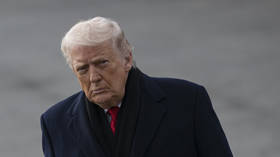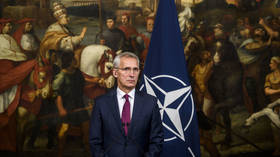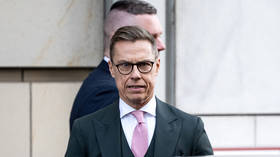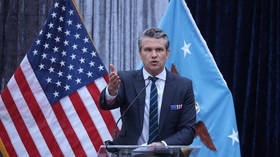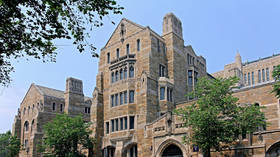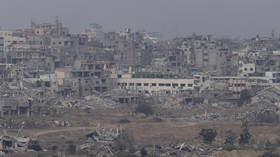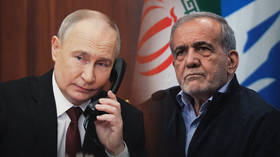Georgia shells its breakaway republic
Residents are reportedly fleeing South Ossetian cities and villages as Georgian shells continue to rain in. South Ossetian officials say the artillery fire is coming from Georgian villages on the border. They say a full-
South Ossetian Security Council’s Secretary, Anatoly Barankevich said that the Georgian President promised to show ‘maximum restraint’.
“But his words once again have proved to be lies. Under the cover of these announcements a large amount of armed vehicles are approaching including tanks and more than a thousand troops,” Barankevich said.
He also said that one Ossetian village “has been under heavy shelling for several hours” and parts of it are on fire.
“This all shows that a massive aggression against the South Ossetian Republic is beginning,” he said.
Earlier, four people were reported to have been killed and more than two dozen injured in artillery exchanges.
After a night of gunfire, the shelling resumed at daybreak. Residents are on the move, evacuating vulnerable areas of the South Ossetian capital.
Authorities in the breakaway region say the bombardment started in Georgian-controlled areas over the border, and they were forced to return fire.
The republic’s President, Eduard Kokoity, says his forces are acting in self defence: “South Ossetia stopped shooting for 40 minutes and Russian peacekeepers attempted to convince Georgia to stop firing. Yet they continue the shooting using heavy artillery and grenades. We opened fire in response,” he said.
Hospitals in South Ossetia began filling up with casualties overnight.
Fourteen people received treatment, ten civilians and four military officials.
Georgia is reporting casualties too, accusing South Ossetia of shelling civilian settlements in the border region.
Georgia's Reintegration Minister, Temur Yakobashvili, insists South Ossetia started the latest spat: “The secessionist side decided Georgians were trying to occupy the hills, which doesn't correspond to reality. And based on that false information they started to attack Georgian civilian villages,” he said.
The Georgian President Mikhail Saakashvili has called for an end to the violence, saying he is ready for negotiations with the breakaway region. He accuses South Ossetia of stirring up violence and thwarting the talks.
“We must use joint efforts to end this madness,” he said.
“I have ordered my representative in the negotiations to meet with representatives from the Russian side both in Tbilisi and the area of conflict. We must find ways to avoid similar excesses of violence and danger to the population. We will use maximum restraint, but I don't recommend anyone continues to provoke us,” Saakashvili said.
Russia has expressed deep concern about the outbreak of shelling.
The latest reports say Georgia is moving a large contingent of troops to the border region – a move Moscow says could mean its preparing for war.
The Russian government has sent envoys to the region, who along with its permanent peacekeepers there, are pushing for negotiations between the two sides.
South Ossetia has been controlled by an unrecognised separatist government since the end of a war with Georgia in the early 1990s.
Tensions in the region have soared in recent months and outbreaks of violence have become increasingly frequent in the border regions.
Georgia says its an internal affair that can be resolved without outside interference.
But Russia’s Foreign Ministry has warned that in the event of an escalation in violence, it will move to defend a region where most residents hold Russian passports.


